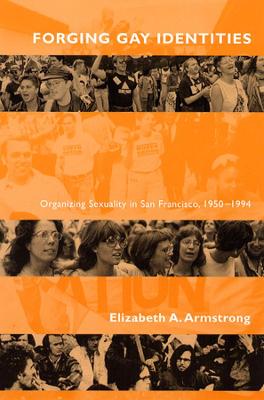Unlike many social movements, the gay and lesbian struggle for visibility and rights has succeeded in combining a unified group identity with the celebration of individual differences. In "Forging Gay Identities", Elizabeth Armstrong explores how this happened, developing a new approach that draws on both social movement and organizational theory. She traces the evolution of gay life, gay organizations and gay identity in San Francisco from the 1950s to the mid-1990s, identifying two events as pivotal in their evolution. First, in 1969 the encounter between early homophile organizing and the New Left produced gay liberation and its signature contribution - coming out. Second, the sudden decline of the New Left in the early 1970s reduced the viability of the radical gay-liberation goal of societal transformation and prompted gay activists to redirect their movement to the affirmation of gay identity and the pursuit of gay rights. "Forging Gay Identities" should be valuable for anyone studying social movements, culture, identity politics or ogranizational theory.
- ISBN10 0226026930
- ISBN13 9780226026930
- Publish Date 15 December 2002
- Publish Status Active
- Publish Country US
- Imprint University of Chicago Press
- Edition 2nd ed.
- Format Hardcover
- Pages 290
- Language English
- URL http://wiley.com/remtitle.cgi?isbn=9780226026930
